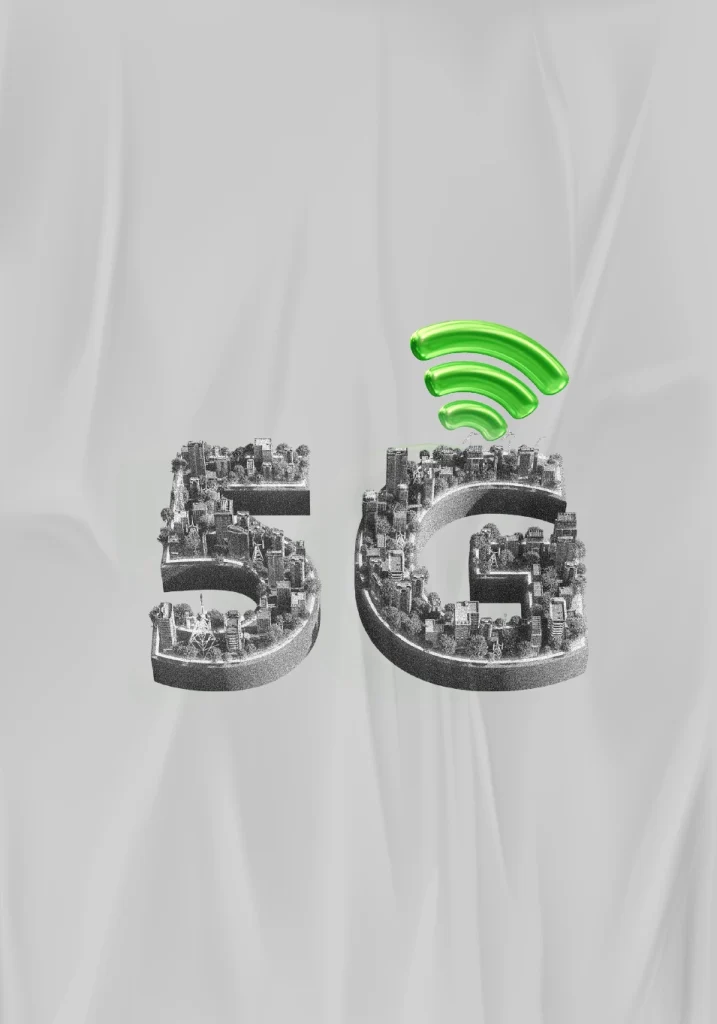The advent of 5G has transformed technology, and the marketing industry is no exception. Newer opportunities to create richer digital experiences and engage in real-time interactions with clients is what this means for marketers. Customer experience is of utmost importance for a marketer today and 5G-backed technologies can help them provide an unprecedented customer experience among others. In this blog, we will dive into how 5G technology has impacted online marketing strategies and what you need to know to leverage its potential.
Faster results and connectivity
5G technology has a number of advantages, one of which is its enhanced speed. 5G promises a dramatic reduction in delay, with download speeds potentially reaching up to 10 gigabits per second. Real-time data transfer and instantaneous communication can be achieved with this improvement. This will mean a better user experience for users. Interactive elements on a website will function smoothly and websites and ads will load faster. The result? Increased engagement rates and reduced bounce rates.
Data-driven Insights
The volume and quality of data that can be collected and analyzed will increase with 5G. Marketers can get real-time data about user behavior, preferences, and interactions. More precise targeting and personalization of marketing efforts will be possible because of this wealth of information. Digital marketing agencies can craft highly tailored campaigns that are tailored to specific audience segments, leading to better ROI and more effective marketing strategies.
Improvement in Mobile advertising
Mobile advertising will benefit greatly from 5G. Mobile ads will load quickly and be more engaging at faster speeds. Enhanced video quality, interactive ads, and improved ad formats will become the norm. The ability of 5G to handle more simultaneous connections means that marketers can reach a larger audience without compromising the quality of their ad experience. In a mobile-first world, this shift is very important.
Localized Marketing and Geo-targeting
With the precision of 5G, localized advertising and geo-concentrated marketing becomes extra effective. Businesses can leverage real-time location statistics to deliver relevant and well-timed advertising and marketing communication to customers primarily based on their current location. For example, a retail shop can send a special offer to customers who are within a certain radius, encouraging them to go to the shop immediately. This degree of localized concentration can drive visitors and boom conversions.
Enhanced User Engagement with Live Streaming
Live streaming has become a popular way for marketers to reach their target market, and 5G will better this by providing higher quality video content. Marketers could be capable of hosting events, webinars, and interactive classes with minimal delay and higher video resolution. This development will lead to more engaging and interactive live content, helping marketers to build connections with their target market and create real-time engagement.
In conclusion, 5G technology is a game-changer for online marketing strategies. From faster speeds and richer content experiences to data-driven insights, 5G technology opens up new possibilities for digital marketers. As 5G continues to evolve, staying informed and adapting to its capabilities will be key to leveraging its full potential in your marketing strategies.
Frequently Asked Questions
What is 5G?
5G is the latest standard for mobile networks, succeeding 4G. It offers significantly faster data speeds, lower latency, and greater network capacity than previous generations. 5G uses advanced technologies like new radio frequencies, improved antenna designs, and enhanced network architectures to deliver these improvements
How will 5G change marketing?
What are the benefits of 5G for consumers?
For consumers, 5G offers several benefits, including:
SEO –
5G provides significantly faster download and upload speeds, leading to quicker access to content and applications.
Less Delay –
Reduced latency means smoother and more responsive interactions, enhancing the experience for activities like gaming and video calls.Improved Connectivity –
Improved network capacity supports a larger number of connected devices, ensuring consistent performance even in crowded areas.Richer Experiences –
The ability to handle high-quality video, AR, and VR applications allows for more immersive and engaging digital experiences.



